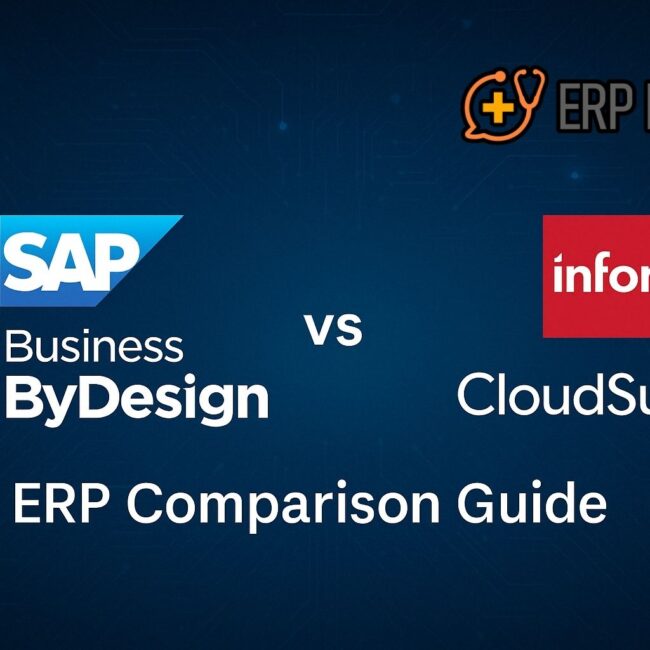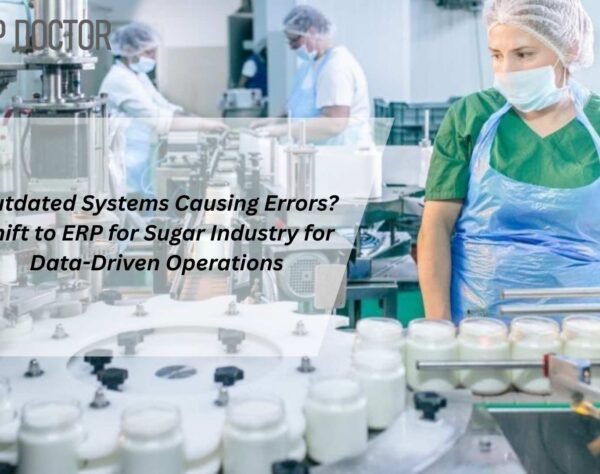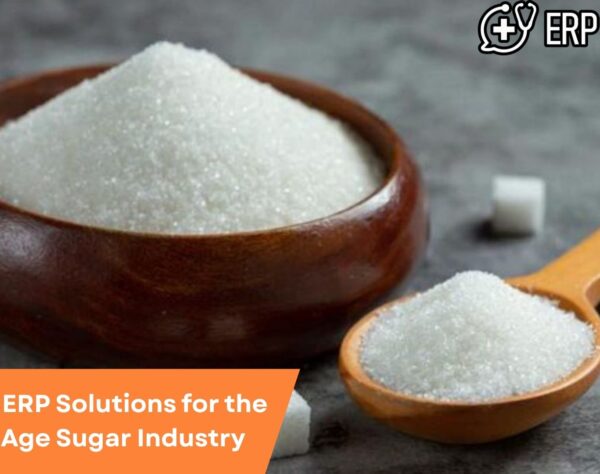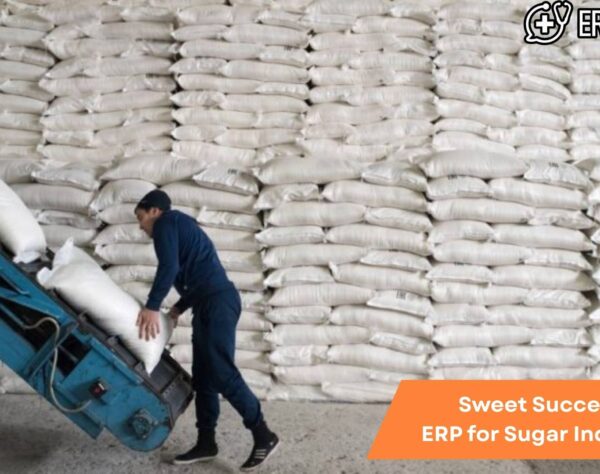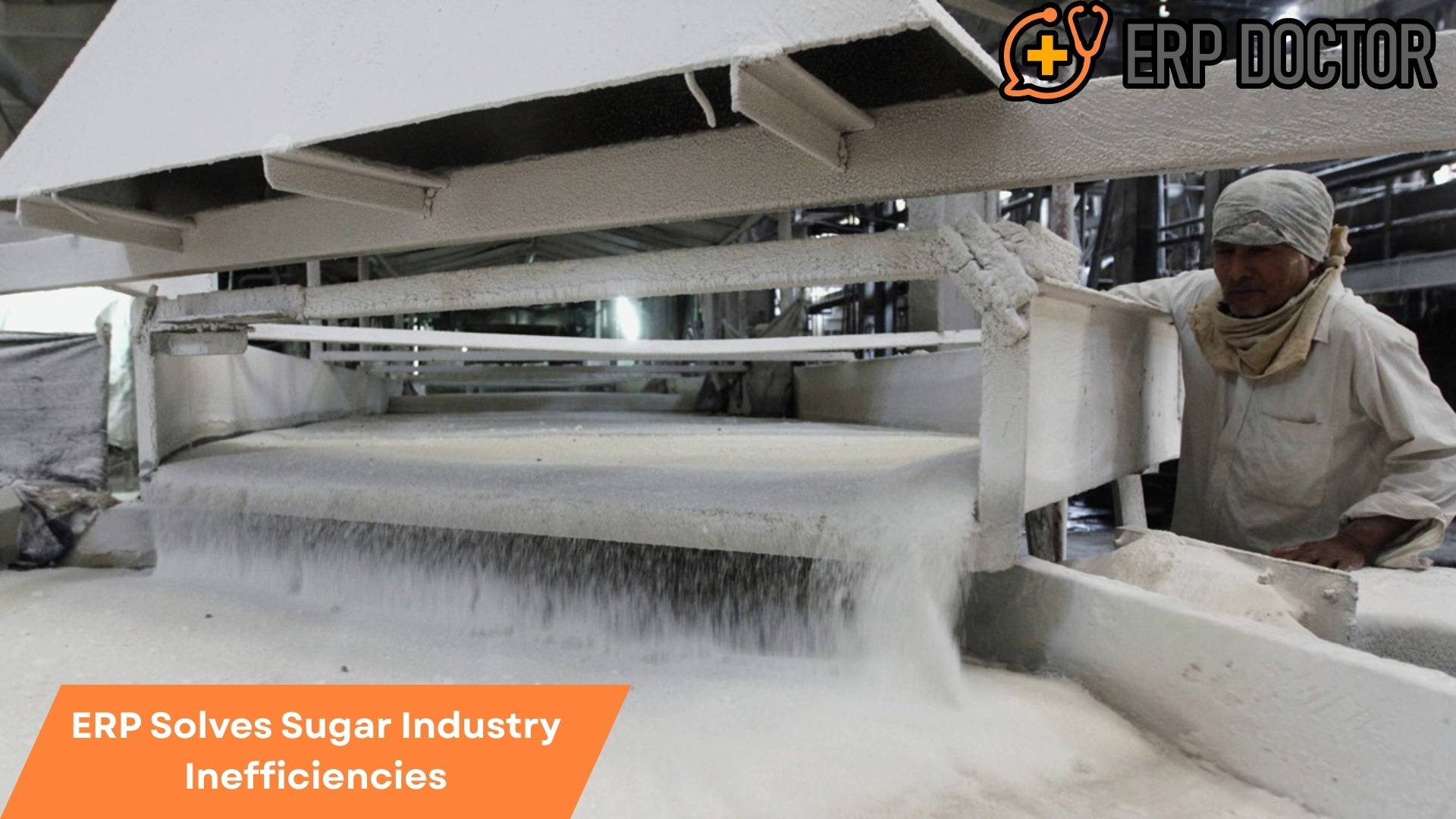
ERP Solves Sugar Industry Inefficiencies
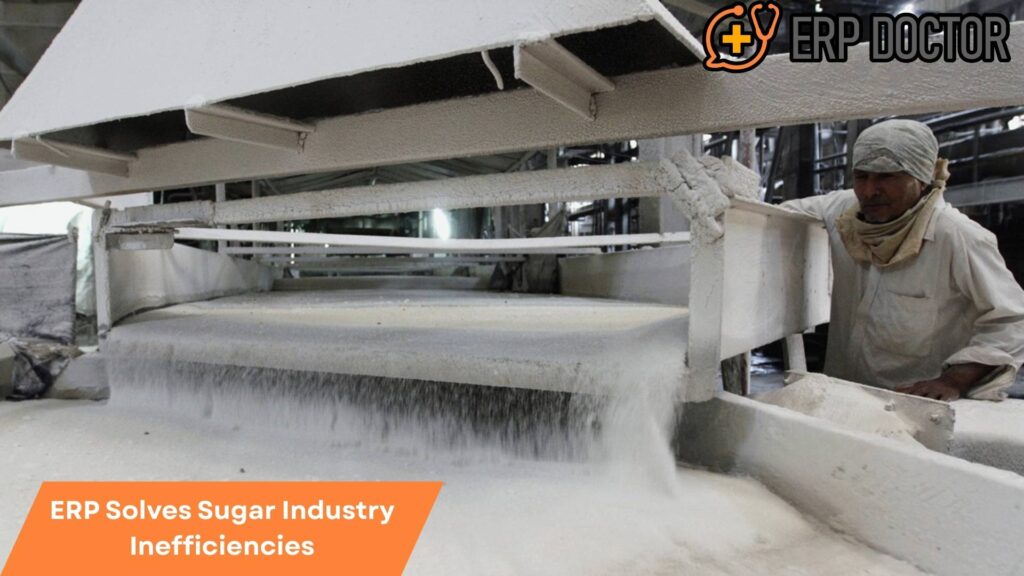
Why the Sugar Industry Needs ERP Now More Than Ever
The sugar industry is no longer just about crushing cane and refining crystals. In today’s data-driven, efficiency-demanding economy, sugar manufacturers face pressure to optimize every stage—from cultivation to packaging and distribution. Fluctuating global demand, unpredictable weather patterns, government regulations, and rising production costs only add more complexity.
That’s where ERP (Enterprise Resource Planning) steps in—not just as a software tool, but as a game-changing solution to eliminate bottlenecks, reduce waste, and improve productivity. An industry as dynamic as sugar deserves an equally dynamic solution—and ERP delivers just that.
Understanding Sugar Industry Inefficiencies
Despite being one of the world’s largest agri-industrial sectors, the sugar industry often struggles with legacy systems, siloed data, and manual processes. Some of the most common inefficiencies include:
- Poor tracking of raw material inventory
- Delays in procurement and logistics
- Lack of real-time data across departments
- Ineffective financial planning
- Challenges in traceability and compliance reporting
All of these lead to increased operational costs, missed market opportunities, and reduced profit margins. This is where ERP becomes an essential tool—not just for managing but transforming the entire sugar production process.
How ERP Transforms Sugar Industry Operations
Let’s break down the areas where ERP plays a powerful role in the sugar industry:
1. Raw Material Management
An effective ERP system helps monitor sugarcane inflows, weighbridge records, and supplier contracts. It ensures accurate tracking of stock and helps reduce wastage during the crushing season.
2. Production Planning and Control
From crushing schedules to mill operations, ERP aligns workflows, minimizes downtime, and offers real-time production insights across the sugar processing units.
3. Supply Chain & Distribution
Sugar supply chains can span across local and global regions. ERP streamlines transport, storage, and distribution with intelligent logistics planning and inventory visibility.
4. Cost and Financial Management
ERP provides end-to-end financial integration—capturing production costs, labor expenses, taxation, and exports—helping sugar companies stay profitable while staying compliant.
5. Compliance and Quality Assurance
The sugar industry must follow strict health, safety, and export standards. ERP systems offer integrated compliance modules to ensure traceability, audit readiness, and quality control at every step.
ERP Modules Ideal for the Sugar Industry
Different ERP solutions come with various modules, but here are the most impactful ones for sugar businesses:
- Inventory Management – Track sugarcane, packaging material, and finished goods
- Production Management – Monitor crushing, boiling, and refining operations
- Procurement – Automate vendor selection and purchase orders
- Finance & Accounting – Control costs and track profitability
- Sales & Distribution – Handle bulk orders, contracts, and customer service
- Maintenance – Keep machinery and equipment in top shape
- Human Resources – Manage seasonal labor efficiently
When these modules are integrated, the entire sugar operation functions like a well-oiled machine.
Benefits of ERP in the Sugar Sector
Implementing ERP in the sugar industry yields measurable advantages:
- ✅ Real-time operational visibility
- ✅ Reduced manual errors and data duplication
- ✅ Faster decision-making with live dashboards
- ✅ Enhanced coordination between departments
- ✅ Optimized inventory and supply chain efficiency
- ✅ Improved production yield and resource utilization
As more sugar mills transition to automation, those without ERP risk being left behind.
Customizing ERP for Sugar Industry Needs
No two sugar businesses are exactly alike. That’s why choosing the right ERP solution requires a partner who understands your industry-specific needs. A customized ERP system for sugar can support:
- Multiple crushing units across regions
- Multi-language, multi-currency operations for exporters
- Complex pricing structures for domestic and international sales
- Integration with agricultural supply data and climate models
Whether you’re a co-operative mill, private refinery, or large-scale sugar conglomerate, your ERP solution must scale with your ambitions.
ERP is the Sweet Spot for Sugar Industry Success
The sugar industry is at a critical point where embracing digital transformation is no longer optional—it’s a necessity. ERP offers the clarity, control, and scalability required to tackle inefficiencies and build a future-ready enterprise.
From field to factory to freight, ERP empowers the sugar business to work smarter, respond faster, and deliver better. If you’re ready to sweeten your success, now is the time to invest in the right ERP solution tailored for the sugar industry.
✅ FAQs
1. What makes ERP essential for the sugar industry today?
ERP helps automate and integrate all operations—from procurement to production and sales—reducing inefficiencies in the sugar industry.
2. Can ERP systems handle seasonal workforce needs in sugar mills?
Yes, ERP offers HR modules that support seasonal staffing, payroll, and compliance tracking in the sugar industry.
3. How does ERP improve sugarcane procurement processes?
ERP streamlines vendor contracts, tracks supply quantities, and ensures timely payments for sugarcane suppliers.
4. Is ERP helpful for sugar exporters managing multiple currencies?
Absolutely. ERP supports multi-currency transactions, export documentation, and tax compliance for international sugar trade.
5. What ERP features help reduce sugar production downtime?
Maintenance scheduling, real-time monitoring, and automated alerts in ERP reduce machinery breakdowns and delays.
6. Can ERP help sugar factories manage by-products like molasses or bagasse?
Yes, ERP tracks by-product inventory, sales, and usage, helping maximize value from every stage of sugar production.
7. Is ERP customizable for small and medium sugar mills?
Many ERP systems offer modular setups, allowing smaller sugar businesses to implement only what they need and scale over time.
8. How does ERP improve transparency in sugar supply chains?
ERP provides real-time data on sourcing, inventory, transportation, and delivery, enhancing traceability and accountability.
9. Can ERP integrate with agricultural data platforms used by sugar companies?
Yes, ERP systems can integrate with crop forecasting, soil analysis, and irrigation systems to align farming with factory needs.
10. What’s the ROI timeline after implementing ERP in a sugar business?
Most sugar businesses begin seeing operational efficiency and cost savings within 6–12 months of implementing ERP.



